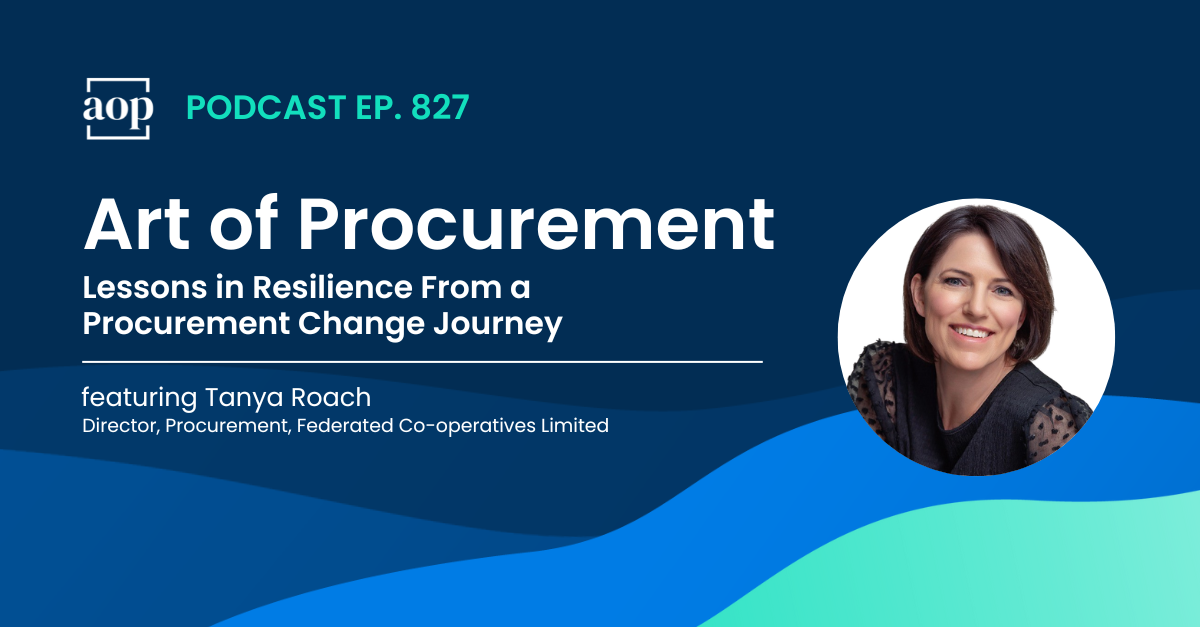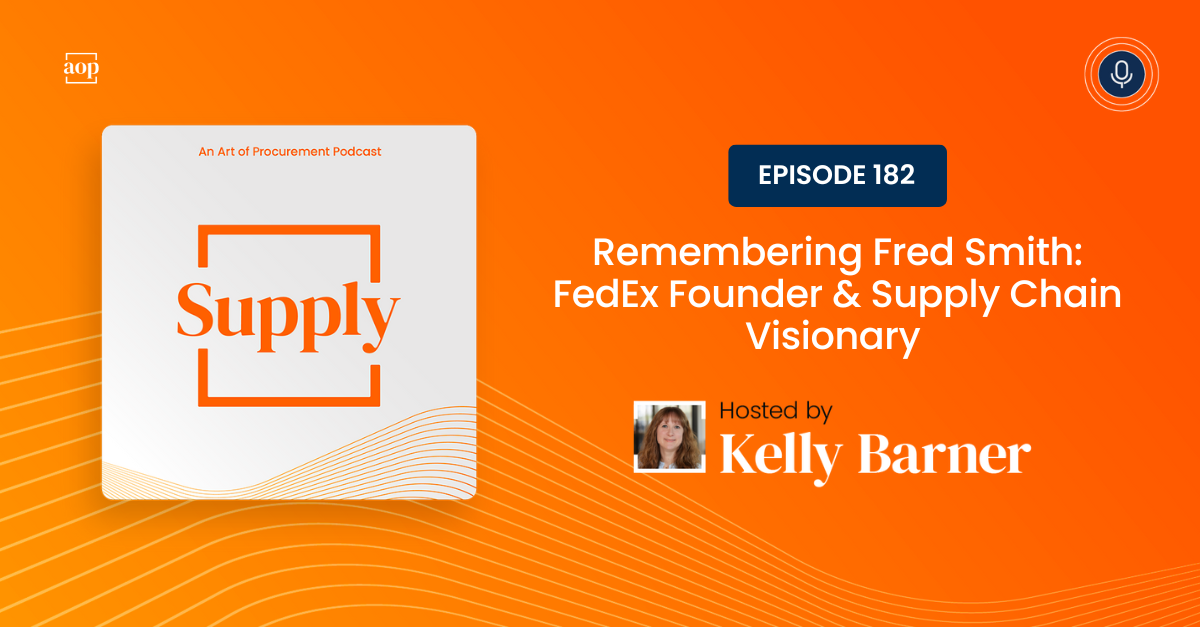3 min read
Lessons in Listening from Joe Rogan and Charlamagne tha God
Kelly Barner : February 20, 2025
.png)
If you've been listening to Art of Supply since at least October, you'll know I covered the major presidential candidates in detail–at least for how their policies would affect the management of business in general and supply chains in particular.
I created rules for myself for that series, and those rules led me to experience new interviewers, most specifically with Joe Rogan and Charlamagne tha God. I'm not the target audience for either, but they both fascinate me.
In my role as Head of Content and Operations at Art of Procurement, I listen in interviews, pre-interviews, strategy sessions and source material conversations. I listen to not only gather information but to determine the next best question so my audience can hear the answer.
If I can get better at listening, it will change everything. I really think we need to learn to listen better in general, and Joe and Charlamagne are the masters of listening.
In this episode of Art of Supply, I’m going to dissect what makes these two hosts so effective:
- Looking at their unique interviewing and conversational styles
- Understanding the atmosphere they create for guests and the information/perspective that results
- Applying all of it to our personal and professional opportunities to connect with people more meaningfully–by listening, not talking.
One thing that sets Joe Rogan and Charlamagne tha God apart is that they are not interviewing their guests. They are having conversations.
For anyone not familiar, Joe Rogan is the most popular podcaster in the world, hosting The Joe Rogan Experience and earning millions of subscribers and billions of downloads a year. Charlamagne tha God hosts The Breakfast Club and earns himself 4.5M listeners per week.
They both have spoken about their rocky start as hosts and what it took to get comfortable with their guests, as well as the role that genuine listening and empathy played in having the conversations they do today.
“I’ve learned how to assist the conversation’s flow instead of waiting for my turn to talk. I learned how to be fully locked in with what the other person is saying.”
Joe and Charlamagne both take a curious approach in connecting with their guests, which is part of the reason those recordings are true conversations versus traditional interviews.
Putting Guests at Ease–But Not Keeping Them There
What's the key to having a good conversation? If you ask Joe Rogan, you have to start from a place of “ I think it would be cool to talk to that person.” That sets him up to have a genuine desire to hear their perspectives.
While some of the opinions he and his guests share can come off as controversial, even those who don't care for those opinions agree he is a good host, with The Guardian’s Bridget Delaney admitting, “Rogan himself is a good facilitator…His questions are intelligent and [he] comes across as curious and engaged.”
In most cases, as a podcast host, you will offer your guests preparation questions so they have a general idea of what you both will discuss. Charlamagne tha God, although providing his guests with some prep, also keeps them on their toes.
Rather than sticking to the strictly prepared questions, he aims to get people out of the rut of traditional interviews and takes an approach that allows him to more openly question his guests, be they celebrities, politicians, or otherwise.
Both hosts are able to do that because of their commitment to preparation.
Joe and Charlamagne do their homework well in advance before having anyone on their podcasts. They don't simply stick to the present, but rather go back in time so they know exactly where they want the conversation to go. Still, they remain open to what their guests have to say, creating a free dialogue to learn from each other.
Being Real with Guests–and Making Them Get Real Too
In order to have good conversations, we first have to understand that there is a big difference between interviewing and podcasting. As an interviewer, you take a journalistic approach to gather facts that fuel your discussions. Meanwhile, podcast hosts aim to understand “the why” behind those facts–and you have to approach that carefully.
If we take a page from Joe Rogan's book, good listening, and as a result good conversations, come from asking follow-up questions, not just getting through the initial ones you planned for. As a host, you need to adapt to your guest without sacrificing the authenticity of the conversation. Some topics are uncomfortable, and it's your responsibility to ease people in and out of them, reading your guest’s energy for when to make those moves.
That authenticity is something that Charlamagne holds to. His self-proclaimed “don’t bite my tongue for no one” attitude allows him to separate the topic from the person and stick to his beliefs, refusing to ever lie to his audience.
Whether he is asking the questions or being interviewed, Charlamagne remembers the importance of taking time to think about and form an opinion before expressing a reaction. Even when time is against them, he pushes the conversation to get the answers he's looking for.
Applying This All to Business Listening
While all these lessons mean something different for me, as a podcast host and writer, than they do to you, they can still be applied to important meetings, sessions with decision makers, and conversations with strategic suppliers.
My advice?
Do your homework and come prepared for every conversation. Be curious, ask follow-up questions, go deeper, and really listen. Treat everyone equally, the people you agree with and the people you don't. Adapt your tone and energy level to your guest, but stay firm in your position.
Don’t presume you know the end of the story. Let the end emerge.




